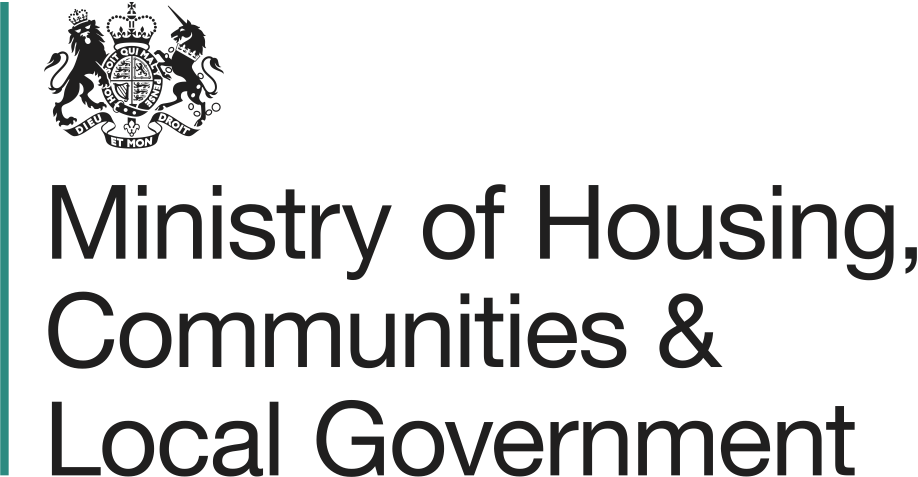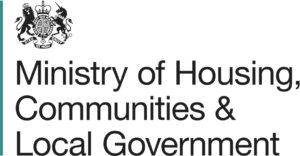
Processing of personal data
This notice sets out how the Ministry of Housing Communities and Local Government (MHCLG) will use your personal data for the purposes of this call for evidence and explains your right under the UK General Data Protection Regulation (UK GDPR) and the Data Protection Act 2018 (DPA).
1. Your data (Data Subject Categories)
The personal information relates to members of the public, parliamentarians, and representatives of organisations or companies.
2. The data we collect (Data Categories)
Information may include the name, address, email address, job title, and employer of the correspondent, as well as their opinions. It is possible that respondents will volunteer additional identifying information about themselves or third parties.
3. Legal basis of processing
The processing is necessary for the performance of a task carried out in the public interest. The task is consulting on departmental policies or proposals, or obtaining opinion data, in order to develop good effective policies.
4. Special data categories
Although not being requested, it is possible that special category data may be processed if such data is volunteered by the respondent.
5. Legal basis for processing special category data
Where special category data is volunteered by you (the data subject), the legal basis relied upon for processing it is: The processing is necessary for reasons of substantial public interest for the exercise of a function of the Crown, a Minister of the Crown, or a government department. This function is consulting on departmental policies or proposals, or obtaining opinion data, to develop good effective policies.
6. Purpose
The personal information is processed for the purpose of obtaining the opinions of members of the public and representatives of organisations and companies, about departmental policies, proposals, or generally to obtain public opinion data on an issue of public interest.
7. Who we share your responses with (Recipients)
Information provided in response to a call for evidence may be published or disclosed in accordance with the access to information regimes. These are primarily the Freedom of Information Act 2000 (FOIA), the Data Protection Act 2018 (DPA) and the Environmental Information Regulations 2004 (EIR).
If you want the information that you provide to be treated as confidential, please be aware that, under the FOIA, there is a statutory Code of Practice with which public authorities must comply and which deals with, amongst other things, obligations of confidence. In view of this it would be helpful if you could explain to us why you regard the information you have provided as confidential. If we receive a request for disclosure of the information, we will take full account of your explanation, but we cannot give an assurance that confidentiality can be maintained in all circumstances. An automatic confidentiality disclaimer generated by your IT system will not, of itself, be regarded as binding on MHCLG.
Where someone submits special category personal data or personal data about third parties, we will endeavour to delete that data before publication takes place. Where information about respondents is not published, it may be shared with officials within other public bodies involved in this call for evidence process to assist us in developing the policies to which it relates. Examples of these public bodies appear at: https://www.gov.uk/government/organisations.
As the personal information is stored on our IT infrastructure, it will be accessible to our IT contractor NTT. NTT will only process this data for our purposes and in fulfilment with the contractual obligations they have with us.
8. How long we will hold your data (Retention)
Personal information in responses to call for evidence will generally be published and therefore retained indefinitely as a historic record under the Public Records Act 1958. Personal information in responses that is not published will be retained for three calendar years after the call for evidence has concluded.
9. Your rights
- you have the right to request information about how your personal data are processed and to request a copy of that personal data
- you have the right to request that any inaccuracies in your personal data are rectified without delay
- you have the right to request that your personal data are erased if there is no longer a justification for them to be processed
- you have the right, in certain circumstances (for example, where accuracy is contested), to request that the processing of your personal data is restricted
- you have the right to object to the processing of your personal data where it is processed for direct marketing purposes
- you have the right to data portability, which allows your data to be copied or transferred from one IT environment to another
10. How to submit a Data Subject Access Request (DSAR)
To request access to personal data that MHCLG holds about you, email dsar@communities.gov.uk. We are currently unable to respond to queries sent in the post at this time. Any written responses will be addressed upon our return to the office. Ministry of Housing Communities and Local Government, Data Protection Unit, Fry Building, 2 Marsham Street, London SW1P 4DF.
11. Complaints
If you have any concerns about the use of your personal data, please contact us via this mailbox: privacy@communities.gov.uk If we are unable to address your concerns to your satisfaction, you can make a complaint to the Information Commissioner, who is an independent regulator. The Information Commissioner can be contacted at: 0303 123 1113 casework@ico.org.uk Information Commissioner’s Office Wycliffe House Water Lane Wilmslow Cheshire SK9 5AF Any complaint to the Information Commissioner is without prejudice to your right to seek redress through the courts.
12. Contact details
MHCLG is the controller for any personal data collected as part of this call for evidence, the contact details for whom are: HMCLG Fry Building, 2 Marsham Street, London SW1P 4DF. public.enquiries@communities.gov.uk

